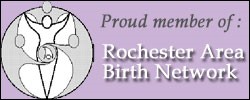How to stay Healthy and low risk – Avoidance of Harmful substances
Recently, I was standing on line at the grocery store, got into an odd conversation with the clerk. It resulted in her asking me “What do you think about all these medications that women take these days during pregnancy or breastfeeding”. “Well,” I said, warming up my elevator speech, “Women need to discuss anything they take with their care provider ahead of time and decide whether it is really medically necessary. Then they need to weigh the benefits of taking the medication against the risks.” But here is what I did not have time to say.
According the AAP, The PDR, and the FDA there is no drug that is considered safe during pregnancy. Sadly this would also include all medications commonly given during birth, as they all reach the baby, and can have negative side effects for both the mom and baby.
Any medication given to a pregnant or laboring woman should be for a true medical problem only. Every day I receive notices from the medical reporting service I use about new research that shows just how dangerous some medications can be. Just because a medication is over the counter does not mean that it is safe to take during pregnancy. The latest research has shown that use of certain decongestants during pregnancy has been connected with birth defects. Try using a Breath Right Strip, saline nasal spray, or a neti- pot instead. Check with your careprovider first, and try natural alternatives.
All prescription medications should be taken to your care provider and checked to see if they are truly necessary during pregnancy, and if there may be a safer medication or a smaller dose might be appropriate. If you are on an antidepressant it is important that you contact your care provider, and discuss the safety issues. If you and your care provider decide that risks of taking the medication outweigh the benefits, and it is necessary for you to discontinue the use of this medication, then you must do so gradually, under the supervision of your care provider. You should not just quit, as it can place you at additional risk.
So, everyone knows that you should avoid all street drugs during pregnancy so your baby will not be harmed, but there are many other substances that should also be avoided to have a healthy pregnancy. They include tobacco, alcohol, caffeine, pollution, pesticides, household and industrial chemicals, and any medically unnecessary medications, including over-the-counter medications. A 2013 study is showing a connection between prenatal smoking and biopolar disorders for children later in life.
However, I do find it odd that you are told not to drink any alcohol during pregnancy, but might be offered morphine in early labor. The morphine did not suddenly become safe because you might be in labor. All risks remain. Remember to use medications only when truly necessary. Educate yourself as to when those circumstances might be. A thorough Childbirth Education class will provide access to this type of information, if your care provider does not supply it.
References:
Brooks, M.; “Prenatal Smoking Linked to Bipolar Disorder in Kids”. Medscape. Oct 08, 2013.
Yau, et al.; Use of Decongestants During Pregnancy and the Risk of Birth Defects Am. J. Epidemiol. (2013) 178 (2): 198-208 first published online July 3, 2013 doi:10.1093/aje/kws427
Prescription Meds Common in Pregnancy; Maybe Too Common. Medscape. Aug 07, 2015.
Penny Simkin, PT; Weighing the Pros and Cons of the Epidural; Childbirth Soloutions Inc., http://www.childbirthsolutions.com/articles/birth/epidural/index.php
Avard, D.M., and Nimroof, C.M. “Risks and Benefits of Obstetrical Epidural Analgesia: A Review.” Birth 12(4):215-225, Winter, 1985.
Reinke, C., Clinical Nurse Specialist at Virginia Mason Hospital, Seattle Washington, Personal communication, June 1991.
Lester, B.M., Als, H., Brazelton, T.B. “Regional Obstetric Anesthesia and Newborn Behavior: A Reanalysis Toward Synergistic Effects.” Child Development 53:687-692, 1982.
FDA APPROVED OBSTETRICS DRUGS: THEIR EFFECTS ON MOTHER AND BABY © 2001 Doris Haire, President, American Foundation for Maternal and Child Health and Chair, Committee on Maternal and Child Health, National Women’s Health Alliance
Drug Therapy During Labor and Delivery, Part 1;Gerald G. Briggs; Stephanie R. Wan ;Am J Health-Syst Pharm. 2006;63(11):1038-1047
Henci Goer, ACCE; Epidurals: Myth vs. Reality, Childbirth Instructor Magazine, Winter 1995 p. 16 – 22.
[This is an excerpt from a future publication: Haas, AV; Healthy Babies! Healthy Moms! A Practical Guide to Preventing Problems during Pregnancy, Labor, and Birth , 2015]
Avhaas©2015



Follow Us!